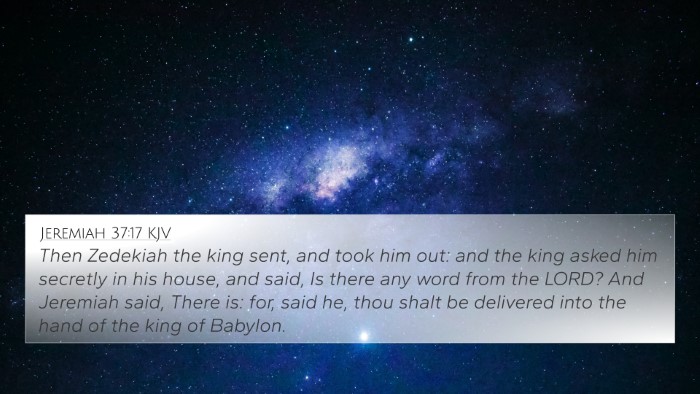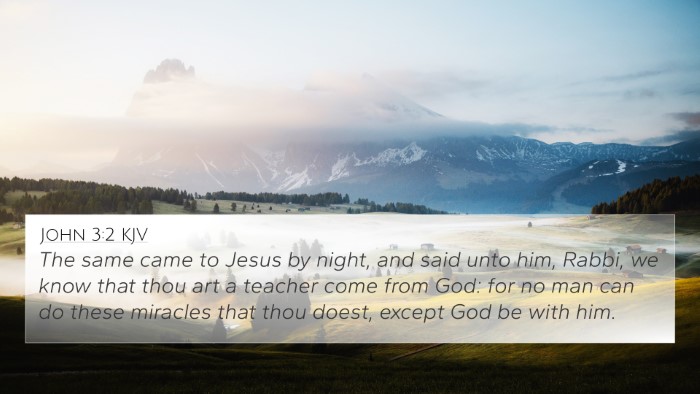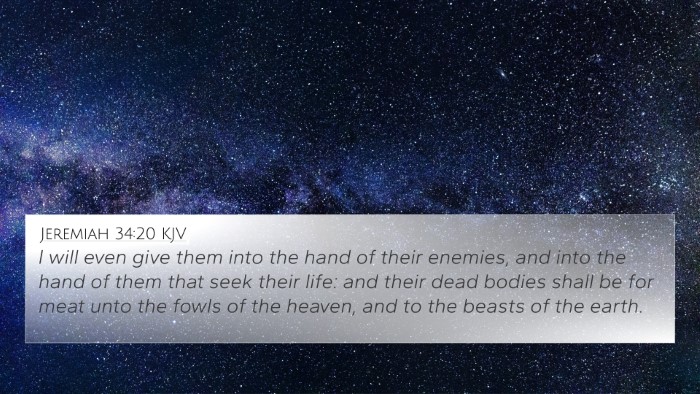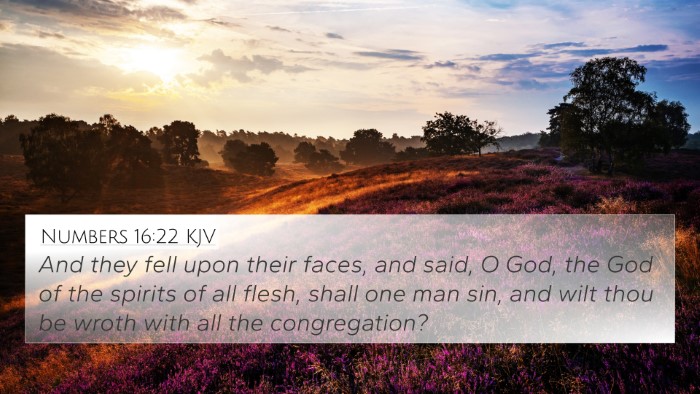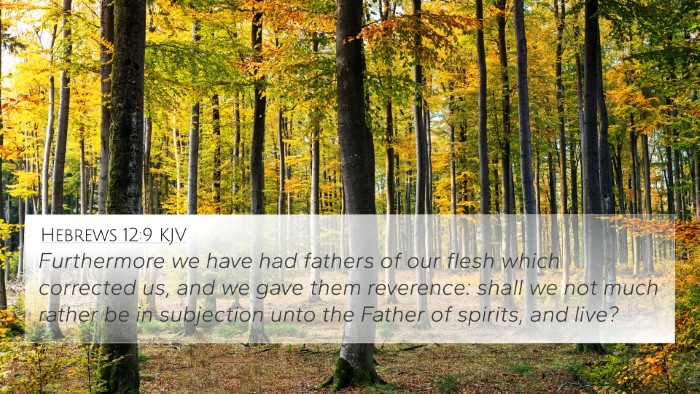Understanding Jeremiah 38:16
Jeremiah 38:16 states, "So Zedekiah the king swore secretly to Jeremiah, saying, 'As the LORD lives, who made our very souls, I will not put you to death, nor will I give you into the hand of these men who seek your life.'
This verse captures a moment of intense political and spiritual atmosphere in Jerusalem during the Babylonian siege. It reflects King Zedekiah's secretive, yet desperate promise to the prophet Jeremiah amidst threats and dangers surrounding them.
Key Themes and Insights
- Desperation of Kingship: King Zedekiah's promise represents a weak leader attempting to safeguard the life of a prophet who has been giving him unwelcome but necessary truths (Matthew Henry).
- The Role of Prophecy: Jeremiah's words are vital as they illustrate the ongoing spiritual dialogue between God and His people through the prophet, emphasizing the importance of prophetic messages (Albert Barnes).
- Divine Assurance: The oath taken by Zedekiah highlights a theme of divine providence, wherein even in dire situations, God’s overarching plans continue to unfold (Adam Clarke).
- Secrecy and Vulnerability: The secretive nature of Zedekiah's assurance reflects the trust that is often overshadowed by fear in leadership, highlighting struggles between faith and political pressure (Henry).
Bible Verse Cross-References
Understanding Jeremiah 38:16 can be enriched when cross-referencing with similar themes found across the Bible. Here are notable cross-references:
- Jeremiah 1:8: God's promise to protect Jeremiah amidst adversities.
- Jeremiah 37:17: Zedekiah seeks counsel from Jeremiah, showing the king's continued reliance on prophetic wisdom.
- 2 Kings 25:4-5: The city besieged, illustrating the dire context surrounding the events of Jeremiah 38.
- Ezra 1:1: God's influence over kings extends even beyond the life of Zedekiah, signifying the continuity of divine intervention in history.
- Acts 23:12-16: Similar themes of secretive oaths and protection seen in the New Testament with the Apostle Paul.
- Isaiah 30:10: The rejection of prophetic voices echoes the reluctance often found within secular leadership.
- Romans 8:31: If God is for us, who can be against us? A reminder of God’s protection amidst adversities.
Cross-Referencing Biblical Texts
The practice of cross-referencing between various Bible texts helps in uncovering deeper meanings and connections. Here are some methods for cross-referencing:
- Bible Concordance: A tool designed to help identify specific words or themes across different verses.
- Cross-Reference Bible Study: Using references provided in study Bibles to connect relevant scriptures.
- Bible Reference Resources: Compendiums that list connections among various verses thematically and contextually.
- Bible Chain References: Following a chain of related verses that help build a comprehensive understanding of a given theme.
- Inter-Biblical Dialogue: Exploring how verses interact between the Old and New Testaments can provide a fuller picture of God's message.
Conclusion: Interpreting Biblical Themes through Cross-References
Jeremiah 38:16 serves as a significant reminder of God's continued communication with His people, even through difficult leadership contexts. By examining this verse alongside its cross-references, believers can deepen their understanding of God's faithfulness, the power of prophecy, and the complexity of faith in politically charged environments.
For further study, consider the interconnections between Jeremiah's experiences, the promises given to the faithful, and the fulfillment found in Christ’s ministry, thereby enriching your spiritual journey through understanding.



